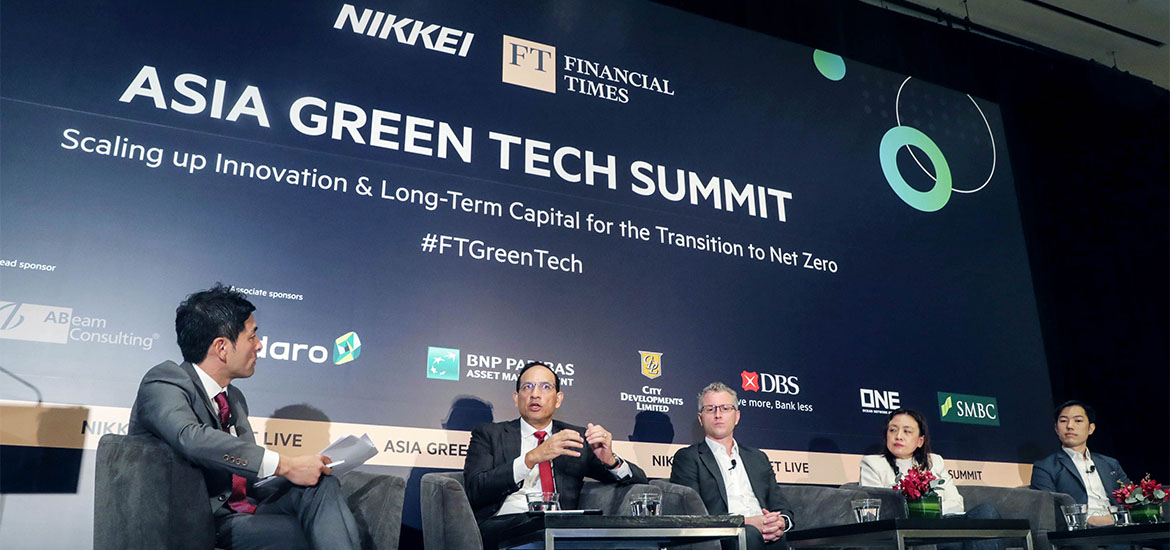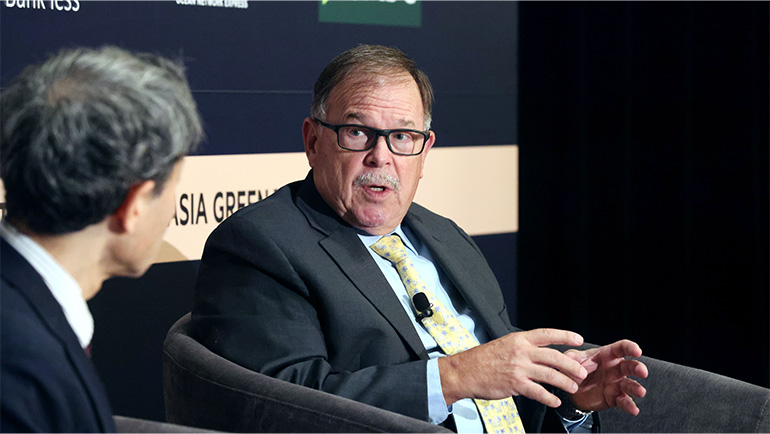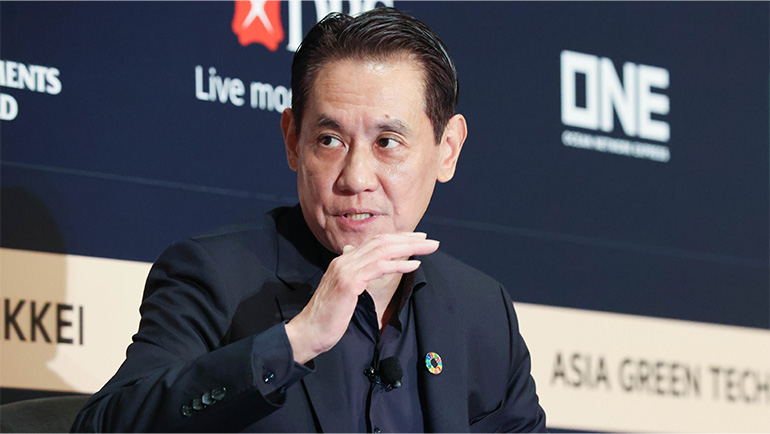Business leaders exchange ideas on driving progress in private sector efforts to slow climate change at the Asia Green Tech Summit in Singapore on Feb. 8. (Photo by Ken Kobayashi)
Companies in Asia are rushing to tap green technology to advance their sustainability goals as the global climate crisis forces enterprises in the fast-growing region to grow without harming the environment.
Business leaders, government officials and investors highlighted the role green tech has to play in combating climate change during a summit in Singapore on Wednesday, with delegates agreeing on the importance of innovation to push the environmental agenda forward.
The Asia Green Tech Summit, hosted by Nikkei and the Financial Times, brought together investors and business leaders from around the globe to discuss how finance and technologies can be deployed at scale to support Asia's transition to a net-zero world.
Jacqueline Poh, managing director of the Economic Development Board, Singapore's investment promotion agency, said the key to keeping the green economy growing will be an ecosystem that encourages innovation.
"We are, on the one hand, extremely vulnerable to the impacts of climate change," Poh said, referring to the country being confined to a small island with limited natural resources and little space to produce alternative energy. "And on the other hand, [Singapore is] a place that uses technology very intensively in order to overcome all our natural disadvantages."













